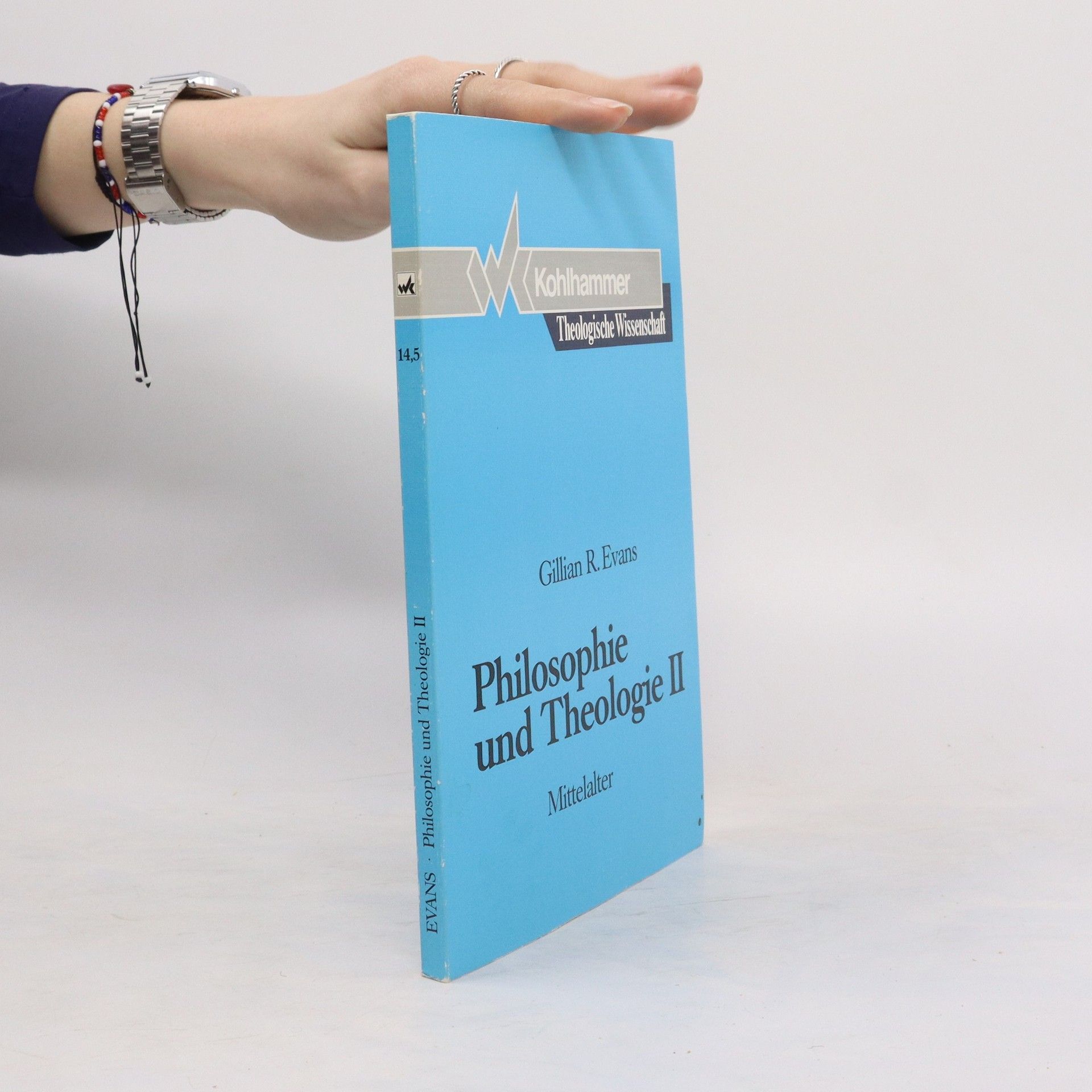Gillian Evans Bücher







Reich illustrierter Überblick über die Geschichte und Gegenwart des Christentums, die wichtigsten konfessionellen und regionalen Ausprägungen, Traditionen und Erscheinungsbilder.
Fifty Key Medieval Thinkers
- 224 Seiten
- 8 Lesestunden
Focusing on individuals whose ideas shaped intellectual life between 400 and 1500, this book is an accessible guide to those religious, philosophical and political concepts central to the medieval worldview.
Crown, Mitre and People in the Nineteenth Century
- 356 Seiten
- 13 Lesestunden
The book explores the contentious relationship between Church and State in the nineteenth century, highlighting how historical events have shaped ongoing debates about disestablishment. Evans delves into the complexities and conflicts that arose during this period, illustrating their relevance to contemporary discussions. Through a detailed analysis, the author reveals the enduring impact of these issues on modern society.
The History of Christian Europe
- 232 Seiten
- 9 Lesestunden
How did Christianity come to have such an extraordinary influence upon Europe? Beginning with the transmission of Jesus- teaching throughout the Roman world, Gillian Evans shows how Christianity transformed not only the thinking but also the structures of society, in a Christendom that was, until relatively modern times, essentially a "European" phenomenon. She traces Christianity's influence across the centuries, from its earliest days, through the East/West schism, the Reformation and Counter-Reformation, to its development in the scientific age of the seventeenth and eighteenth centuries and its place in the modern world. The History of Christian Europe will appeal to scholars of religion and history who are seeking a fuller understanding of how Christianity helped shape and define Europe and, consequently, the wider world.
@blurb2:The name of John Wyclif is surrounded by mythology. According to G.R. Evans, he got both credit and blame for much more than he actually did or probably intended. The ideas associated with his name had a huge influence and their effects were felt
Tato stručná, přesto přehledná a srozumitelná publikace pojednává o problematice kacířství, schizmatu a názorových rozkolů v posledních dvou tisíciletích křesťanského období. Nabízí výčet nejrůznějších heretických směrů od gnosticismu, který ovlivňoval rané křesťanství, až po problematiku současných sekt. Pojem hereze vyvolává nejrůznější představy, od mučedníků smířených se smrtí za své náboženské přesvědčení až po sektářství s jeho prapodivnými a tajemnými rituály. Publikace popisuje bouřlivé dějiny kacířství a ukazuje jak a kdy začala církev, ohrožovaná alternativními ideály, stále důrazněji prosazovat pravověrnost a zkoumá sociální i politické podmínky, v nichž hereze vznikaly, i to, jak církev s jejich stoupenci nakládala a jaké jim vyměřovala tresty, končící mnohdy těžkým žalářem či upálením na kacířské hranici. G. R. Evans přednáší historii na univerzitě v Cambridge a je autorem řady historických, teologických a filozofických publikací.

